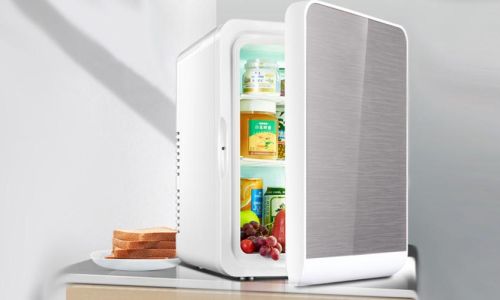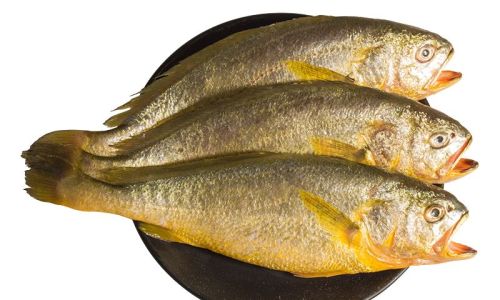Table of content
Introduction
Coconuts, particularly the young, green variety known as “young coconut” or “coconut water,” have gained immense popularity in recent years due to their refreshing taste, natural hydration properties, and numerous health benefits. This tropical delight is often enjoyed straight from the nut, but when it comes to storing fresh young coconut water, many consumers find themselves wondering: should it be refrigerated? The answer to this question isn’t as straightforward as one might think and depends on various factors, including the maturity of the coconut, its packaging, and the duration of storage. This article delves into the intricacies of storing fresh young coconut water, exploring the pros and cons of refrigeration, as well as alternative storage methods.

Understanding Young Coconut and Its Nutritional Value
Before discussing storage, it’s crucial to understand what constitutes a young coconut. Unlike mature coconuts, which are harvested when the husk has turned brown and the nut inside has developed a thick, hard shell with a copious amount of coconut meat and oil, young coconuts are harvested much earlier in their lifecycle. Typically, this occurs between six and ten months after pollination, when the coconut still has a green husk and contains a gel-like, translucent flesh and a refreshing, slightly sweet, and slightly acidic liquid known as coconut water.
Young coconut water is a natural electrolyte beverage, rich in potassium, magnesium, sodium, and calcium, making it an excellent choice for hydration, especially during hot weather or after physical exertion. It also contains vitamins such as vitamin C, B-complex vitamins, and small amounts of amino acids, contributing to its appeal as a health-conscious beverage.
The Impact of Refrigeration on Coconut Water
Preservation of Freshness and Nutrients
Refrigeration is often recommended for prolonging the shelf life of perishable foods, including beverages like coconut water. By lowering the temperature, refrigeration slows down the growth of bacteria and other microorganisms that can cause spoilage. This preservation effect is particularly beneficial for coconut water, which, like any fresh juice, is susceptible to microbial contamination and enzymatic degradation over time.
Refrigeration also helps maintain the fresh, slightly sweet taste of coconut water by slowing down the chemical reactions that can lead to off-flavors. Nutrients like vitamins and minerals are better preserved in a chilled environment, ensuring that consumers enjoy the full nutritional benefits of the beverage.

Texture and Consistency
While refrigeration preserves freshness and nutrients, it can also affect the texture and consistency of coconut water. Some consumers notice that refrigerated coconut water may develop a slightly thicker, more viscous texture compared to its fresh, chilled-from-the-tree state. This change is due to the chilling process causing some of the natural sugars and solutes to precipitate out slightly, altering the liquid’s viscosity. However, this textural change is generally mild and does not compromise the drinkability of the coconut water.
Freezing Risks
It’s important to distinguish between refrigeration and freezing when it comes to coconut water. Freezing coconut water is not advisable as it can cause the liquid to expand and potentially rupture the coconut’s shell or container, leading to leakage and loss of the beverage. Additionally, frozen and thawed coconut water may lose its characteristic fresh taste and develop an icy, watery texture due to the formation of ice crystals.
Factors Influencing Storage Decisions
Maturity and Harvest Conditions
The maturity of the coconut at harvest plays a significant role in determining its storage stability. Younger coconuts, harvested closer to the six-month mark, tend to have a higher water content and a sweeter, more refreshing taste but may have a shorter shelf life compared to those harvested later. Conversely, slightly older young coconuts, harvested closer to the ten-month mark, may have a slightly thicker consistency and a more muted flavor but can often be stored for longer periods without significant quality loss.
Harvest conditions, such as the time of day and the method of harvesting, can also impact the shelf life of coconut water. Coconuts harvested during the hottest parts of the day may have higher initial temperatures, accelerating spoilage processes unless cooled promptly.

Packaging and Handling
The packaging of coconut water can significantly influence its storage requirements. Freshly opened young coconuts, with their natural husks removed, should be consumed immediately or refrigerated to prevent spoilage. Bottled coconut water, on the other hand, often undergoes pasteurization or high-pressure processing (HPP) to extend its shelf life and ensure microbial safety. These treatments allow bottled coconut water to be stored at ambient temperatures for extended periods, although refrigeration is still recommended for optimal freshness and taste.
Proper handling practices, such as minimizing exposure to heat and light, and maintaining hygiene during opening and pouring, are crucial for preserving the quality of coconut water, regardless of its packaging.
Alternative Storage Methods
Room Temperature Storage
For short-term storage (up to a few days), fresh young coconut water can be kept at room temperature, particularly in cooler climates or during colder seasons. However, it’s important to note that room temperature storage accelerates the growth of microorganisms and can lead to spoilage more quickly than refrigerated storage.
Canning and Other Preservation Techniques
While less common for consumer-level storage, industrial-scale preservation techniques such as canning and aseptic processing can extend the shelf life of coconut water for months or even years. These methods involve heating the coconut water to destroy microorganisms and sealing it in airtight containers to prevent recontamination. While effective, these preservation techniques can alter the taste and texture of the coconut water, making them less appealing to consumers seeking a fresh, natural product.

Conclusion
In conclusion, whether or not to refrigerate fresh young coconut water depends on several factors, including its maturity, packaging, and intended storage duration. Refrigeration is generally recommended for preserving freshness, taste, and nutrients, especially for unopened young coconuts and bottled coconut water that has not undergone extensive preservation treatments. However, consumers should be aware of the potential textural changes that can occur with refrigeration and avoid freezing coconut water to prevent quality loss.
Ultimately, the best approach to storing coconut water is to consume it as fresh as possible, ideally within a few days of harvesting or purchasing. For those who wish to extend its shelf life, refrigeration offers a safe and effective means of preservation, ensuring that the natural hydration and health benefits of this tropical delight can be enjoyed for longer.





0 comments